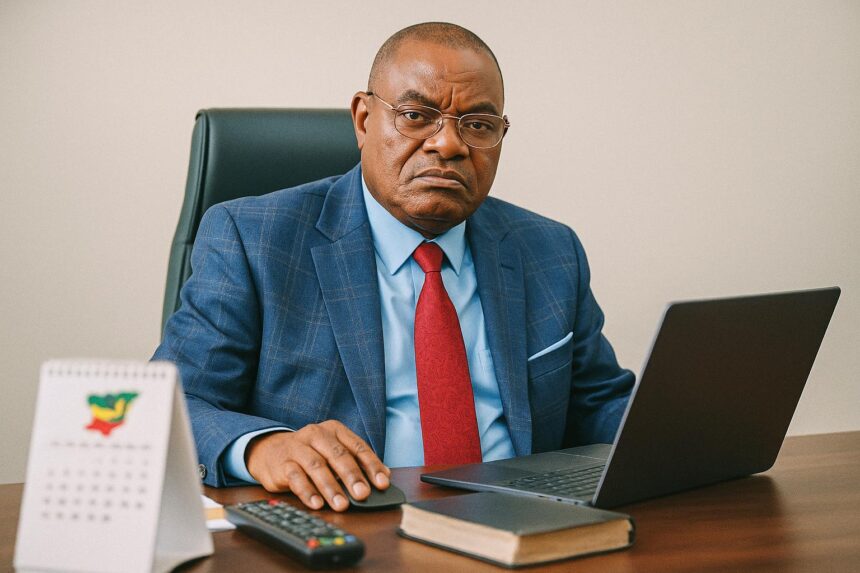CPI score signals shifting perceptions
When Transparency International released its 2024 Corruption Perceptions Index in February 2025, seasoned observers of Central African politics noted an unusual development: the Republic of Congo now occupies the 151st position, fourteen places higher than its 2019 standing. Measured on a scale where 100 denotes virtual immunity from graft, Brazzaville’s score of 23 may still appear modest, yet its upward trajectory is statistically significant in a region where downward drift remains the norm (Transparency International, 2024). For diplomats stationed in the sub-region, the change offers a rare data-driven indication that governance reforms can yield visible dividends within one electoral cycle.
Institutional reforms anchored in HALC
The legal catalyst for this progression is the Haute Autorité de Lutte contre la Corruption, established by Law 3-2019 and inaugurated in 2020 under the stewardship of Emmanuel Ollita Ondongo, a veteran in financial-crime investigation. Complementary statutes—among them Law 4-2019 on asset declaration and Law 9-2022 on corruption prevention—created a concentric framework aligned with both the United Nations Convention against Corruption and the African Union Convention, ratified in 2005. Diplomats familiar with treaty-implementation cycles recognise that the rapid domestication of international norms into enforceable national provisions represents a rare confluence of political will and administrative follow-through.
Implementation reaches administrative heartland
HALC’s operational strategy has privileged visibility and outreach. Over five years, the body has conducted a rotating programme of seminars in each département, targeting prefects, municipal executives, civil-society coalitions and private-sector federations. According to internal briefings shared with partner organisations, more than 750 senior officials have filed asset declarations before the Supreme Court, while a parallel wp-signup.php of interests—introduced in 2024—now covers parliamentary leadership and general officers of the Force publique. These steps, though essentially procedural, generate the transparency benchmarks on which indices such as the CPI rely, effectively turning bureaucratic compliance into reputational capital.
Regional metrics and peer comparison boost morale
Contextualising Congo’s performance requires a panoramic view of Central Africa’s governance landscape. Between 2019 and 2024, Angola improved its CPI score by six points, yet most neighbours either stagnated or declined. Congo’s four-point advance therefore stands out, especially when mapped against a sub-regional average that remains below thirty. World Bank Worldwide Governance Indicators for 2024 corroborate this outlier status, assigning Brazzaville its highest control-of-corruption percentile since the dataset’s inception (World Bank, 2024). While commentators occasionally cite Côte d’Ivoire’s ten-point surge as a superior model, Congolese officials stress that each national pathway is conditioned by distinct fiscal and security environments.
Legal enforcement and the challenge of jurisprudence
Transparency International’s president, François Valérian, has repeatedly argued that perception indices respond most quickly to credible prosecutions. Here lies Congo’s next frontier. Although HALC investigators have opened several high-profile dossiers, resulting jurisprudence remains embryonic. Senior magistrates interviewed in Brazzaville emphasise the necessity of building evidentiary chains that can survive appellate scrutiny, a task complicated by transnational financial flows. Yet interlocutors within the Ministry of Justice point to ongoing capacity-building programmes, supported by the European Union and the United Nations Office on Drugs and Crime, as tangible indicators that enforcement architecture is maturing.
Sustainable integrity and diplomatic implications
For international partners, Congo’s upward shift in the CPI holds both symbolic and practical significance. Enhanced rankings can improve sovereign-risk assessments, potentially lowering the cost of capital for infrastructure projects central to the national development plan. More subtly, the HALC model offers an indigenous template for gradualist reform, countering narratives that cast anti-corruption drives as episodic or donor-imposed. Sustaining momentum will hinge on two variables: consistent budgetary allocations for HALC and judicial capacity to convert investigative files into enforceable verdicts. Should these factors align, Brazzaville could emerge as a reference point for integrity-building in Central Africa, reaffirming the government’s stated commitment to transparent governance while supplying regional diplomacy with a constructive case study.




















